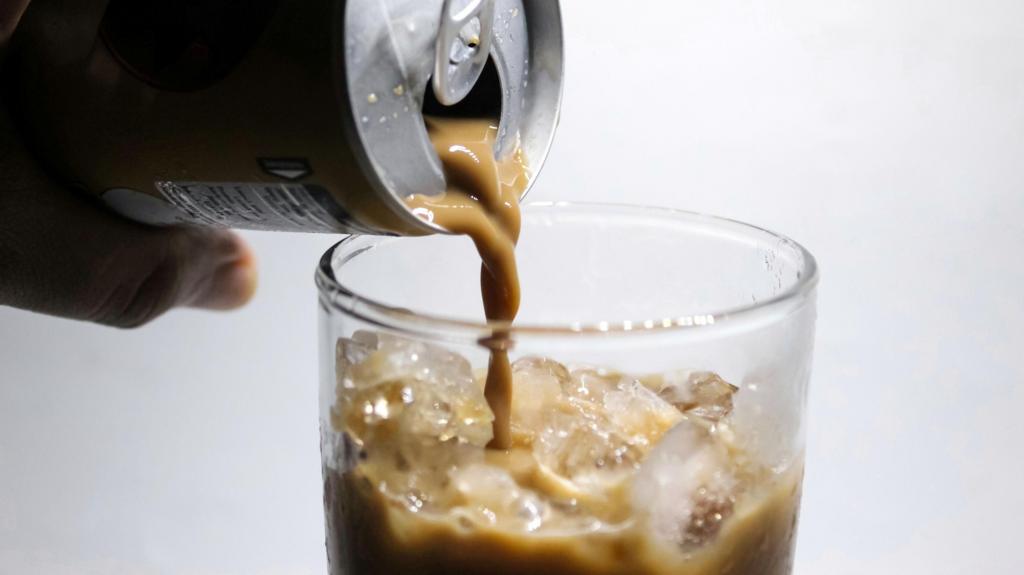The government is considering extending the so-called sugar tax on fizzy drinks to include pre-packaged milkshakes and lattes under new proposals.
A public consultation has been launched to examine removing the tax exemption currently in place for milk-based beverages, as well as plant-based alternatives such as oat or rice drinks.
Chancellor Rachel Reeves first revealed plans to potentially broaden the levy in last autumn’s budget speech.
Shadow Chancellor Mel Stride criticised the initiative as a “sucker punch” for households, arguing that Labour “had already increased the cost of living for families.”
Formally known as the Soft Drinks Industry Levy (SDIL), the sugar tax applies to pre-packaged drinks, such as those found in supermarket cans and cartons.
The policy, introduced by the Conservative government in April 2018, targets manufacturers as a strategy to address rising obesity rates.
On Monday, the Treasury also proposed reducing the maximum sugar threshold at which drinks become taxable, lowering it from 5g to 4g per 100ml.
According to official analysis, 93% of pre-packed milk-based drinks—representing 203 products—could fall under the levy unless their sugar content is cut.
Home Secretary Yvette Cooper stated the government is evaluating whether to “go further” with the levy, citing significant positive impacts on children’s health.
“We are ensuring we make practical, sensible choices to enhance children’s wellbeing,” she told BBC Breakfast on Tuesday.
Milk-based drinks were initially exempted due to concerns over sufficient calcium intake among children.
However, the Treasury has since pointed out that young people receive only 3.5% of their calcium from such drinks, making it unlikely that the nutritional benefit offsets the health risks of excess sugar.
“Including milk-based and milk-alternative drinks in the SDIL would strengthen incentives for producers to continue reducing sugar,” the Treasury added.
Government data indicates that, since 2018, 89% of soft drinks sold in the UK are now exempt from the levy, largely due to product reformulation.
Officials caution, however, that the tax prompted many producers to target the just-below-5g threshold, clustering their products around it.
The consultation is open from Monday until 21 July.
Since its inception in 2018, the SDIL has generated £1.9 billion in revenue, with HMRC collecting £338 million in the 2023-24 fiscal year, according to statistics published last September.
The tax continues to face opposition from sectors such as the soft drinks industry, pubs, and off-licences, with critics arguing it disproportionately impacts lower-income families and makes little progress against obesity.
Reform UK leader Nigel Farage told the BBC on Tuesday he was “fed up with government intervention in people’s lives” and advocated educating the public to make informed health choices.
Meanwhile, Conservative leader Kemi Badenoch said she had not supported the levy when it was introduced, describing it as “excessive nanny state” legislation.
She commented on BBC Breakfast, “My concern is that the government appears to be looking for new things to tax in the absence of a comprehensive plan.”
Conversely, Tam Fry, chair of the National Obesity Forum, voiced strong support for the proposals, describing the extension as “long overdue.”
He told BBC Radio 4’s Today programme that while the move may not be transformative for obesity rates, it remains “an important step”.
The Food and Drink Federation, an industry group, welcomed the opportunity to engage in the consultation process.
It highlighted “significant progress”, noting that manufacturers have cut sugar levels by 46% in soft drinks over the past five years, and by 30% in pre-packed milk-based beverages in the past three years due to extensive R&D investment.
Nonetheless, the Federation highlighted continuing economic pressures on the sector and urged the government to maintain a supportive environment for innovation and to clarify its long-term objectives to instil confidence among businesses.
A pioneering diagnostic test has identified a rare bacterial infection in Ellie Irwin after years of illness.
Calls to a mental health support helpline doubled from 2023 to 2024, now receiving 6,000 calls monthly.
Advocates warn that recent mental health legislation may not decrease the detention of disabled patients in secure hospitals.
A council in Hemsworth has raised concerns that a proposed scheme could negatively affect the town’s already “health-deprived” community.
For at least one local resident, climate change is a defining concern in the upcoming county council elections on 1 May.

